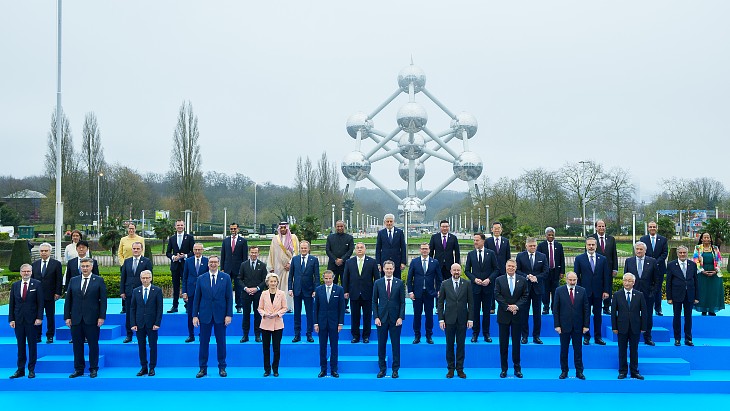In our last two posts we looked at the pledge signed by more than 20 countries at COP28 in Dubai to triple the amount of nuclear globally by 2050 and the pledge made by more than 120 companies in the nuclear industry to meet this challenge. This month we comment on the first global Nuclear Energy Summit held in Brussels March 21, 2024.
This summit, organized by the IAEA together with Belgium, included senior government delegations from 32 countries, coming together for the sole purpose of discussing the future of nuclear energy and its role in supporting countries’ climate and energy security goals.
The list of 32 countries includes 14 additions to those who signed the nuclear pledge at COP28 (not all COP28 signatories participated in this event). This includes new countries with long histories of nuclear power like Argentina, India, Pakistan, and Slovakia, to those who are active nuclear newcomers (Bangladesh, Egypt, and Turkey) and those who are aspiring to bring nuclear power to their countries (Philippines, Saudi Arabia, and Serbia). The list also includes China, who has 55 operating nuclear plants and another 36 under construction, the world’s most active nuclear program, and Kazakhstan, the world’s largest supplier of uranium.
Just the fact that the summit was hosted by Belgium is important, given that it only recently abandoned its plan for a full nuclear phase out. And add Italy to the list of countries who have not been supportive of nuclear in the recent past.
The resulting declaration stated “We, the leaders of countries operating nuclear power plants, or expanding or embarking on or exploring the option of nuclear power … reaffirm our strong commitment to nuclear energy as a key component of our global strategy to reduce greenhouse gas emissions from both power and industrial sectors, ensure energy security, enhance energy resilience, and promote long-term sustainable development and clean energy transition.”
The declaration identified a range of topics where policies need to evolve (for a more complete description refer to the WNA release) including increased financing, workforce development. and support to nuclear newcomer countries. We will discuss each of these items in future posts. They are all critical to a healthy growing global nuclear sector. Why is this important? Because rather than continuously debate whether to pursue nuclear, the discussion has finally moved on to collaborating to create the necessary conditions for success.
In support of the government’s declaration, global industry associations released a joint statement noting their strong support to ensure governments can meet their nuclear ambitions. In addition, a group of 20 NGOs from around the globe issued a Declaration on the Future of Nuclear Energy jointly calling for the efficient and responsible expansion of nuclear energy.
This first nuclear summit shows the collation of countries, industry and NGOs supporting and actively promoting nuclear power is growing rapidly. It is unprecedented in the level of national leader support for nuclear since President Eisenhower’s Atoms for Peace speech 70 years ago. The time has come for action, and the stage is set to put in place the necessary policies to enable the rapid scaling of nuclear in meeting all our climate and energy security needs. The future is bright. But the work ahead is hard. This is only the beginning.
[Complete list of those signing the declaration: Argentina, Armenia, Bangladesh, Belgium, Bulgaria, Canada, China, Croatia, the Czech Republic, Egypt, Finland, France, Hungary, India, Italy, Japan, Kazakhstan, Netherlands, Pakistan, Philippines, Poland, Romania, Saudi Arabia, Serbia, Slovakia, Slovenia, South Korea, Sweden, Turkey, United Arab Emirates, UK, and the USA]














